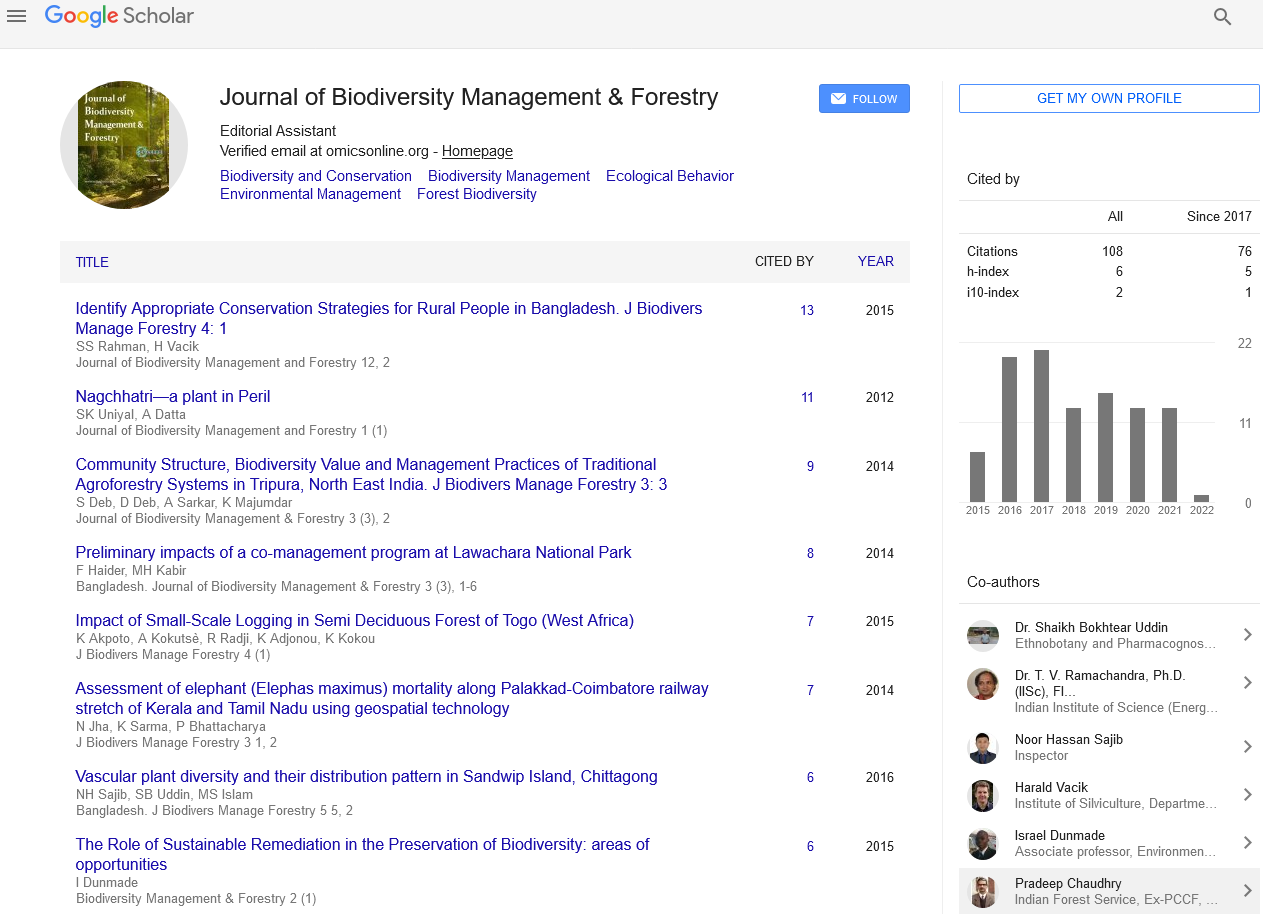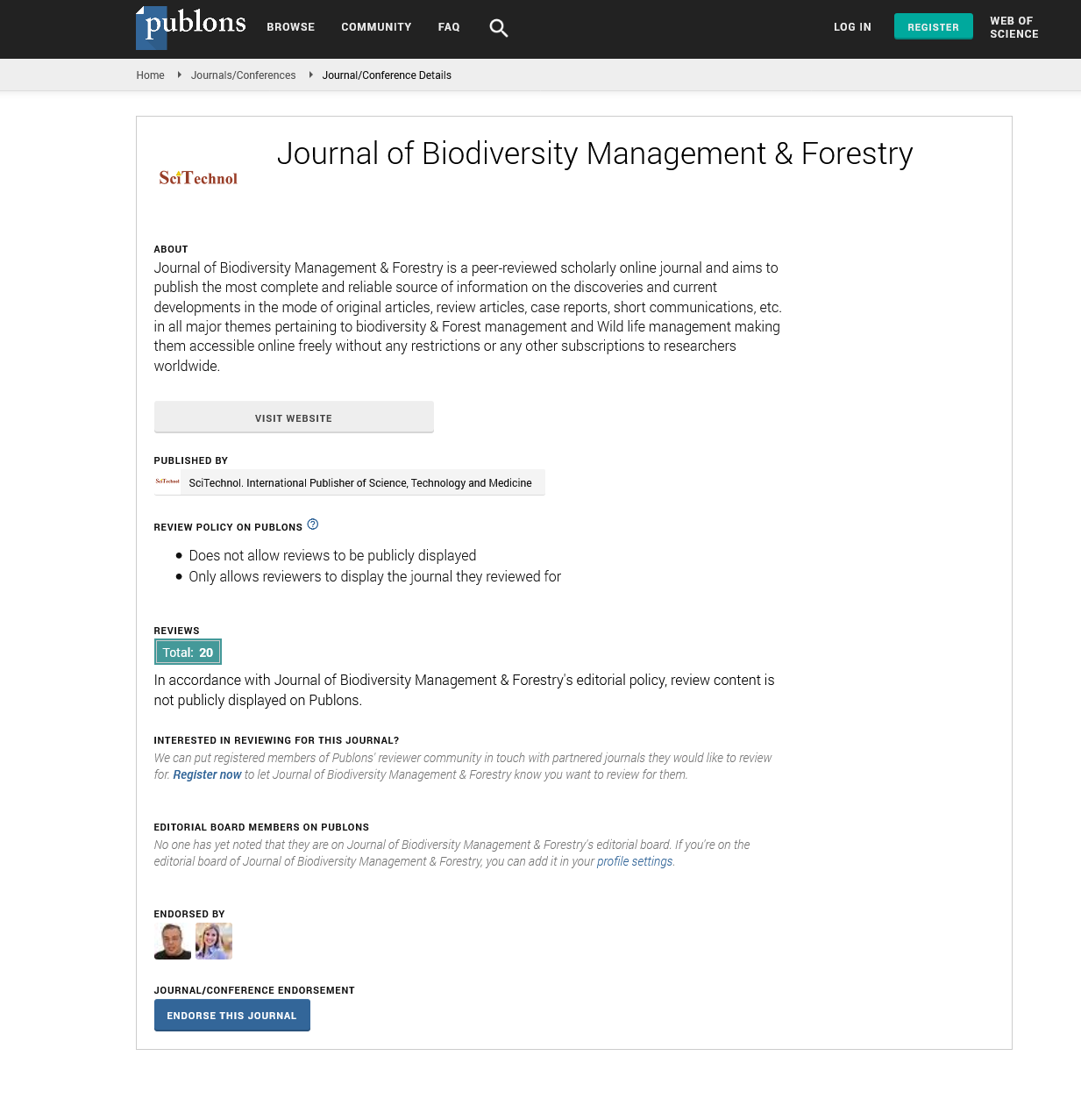Modelling the impacts of Climate Change on skipjack tuna (Katsuwonus pelamis) in the Mozambique channel
Anildo Naftal Nataniel
Eduardo Mondlane University, Mozambique
: J Biodivers Manage Forestry
Abstract
Skipjack tuna play a significant role in global marine fisheries and are of particular interest for socio-economy in the tropical waters of the Mozambique Channel. However, human-induced climate change has been leading to a reduction and reallocation of biomass, along with other ecological changes, thereby creating a feedback loop with negative socioeconomic consequences for fisheries-reliant coastal communities. The objective of this study was to predict the potential skipjack tuna fishing grounds by 2050 and 2100. To that end, skipjack tuna catch data were collected from Spanish purse seine fleets and subsequently Generalized Additive Models were used to model these data against a combination of environmental variables and future pathway projections from BIO-ORACLE models under optimistic (RCP2.6) and pessimistic (RCP8.5) scenarios. Both optimistic and pessimistic scenarios by 2050 predicted that the potential fishing grounds will relocate southward from tropical to more temperate waters, with moderate shifts in the potential fishing grounds of purse seines to the latitude >16ºS. Whereas the pessimistic scenario predicted higher displacement catches of purse seines in the southernmost part (>24ºS) and moderate to high catches in northern (>20ºS) of the Mozambique Channel by the end of the century Despite the degree of uncertainty surrounding the climate change impacts on skipjack tuna we argue that fisheries stakeholders, administrators and regional tuna fisheries management organizations should work toward building resilience and ensuring sustainability while reducing or mitigating vulnerability and climate change impacts on local and regional communities and their livelihoods.
Biography
Nataniel holds a PhD. in Marine Science and Applied Biology from the Department of Marine Science at the University of Alicante, Spain. He is a lecturer and researcher at the School of Marine and Coastal Sciences - Eduardo Mondlane University in Mozambique. He is interested in the socio-ecological study of industrial and small-scale fisheries in coastal waters. he is also interested in studies of the impact of climate change on the distribution and abundance of fish resources and the implications for coastal communities.
 Spanish
Spanish  Chinese
Chinese  Russian
Russian  German
German  French
French  Japanese
Japanese  Portuguese
Portuguese  Hindi
Hindi 
